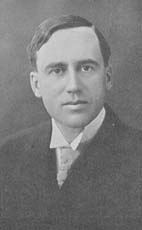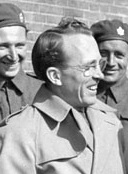| ||||||||||||||||||||||||||||||||||
62 seats in the Legislative Assembly of Saskatchewan 32 seats needed for a majority | ||||||||||||||||||||||||||||||||||
|---|---|---|---|---|---|---|---|---|---|---|---|---|---|---|---|---|---|---|---|---|---|---|---|---|---|---|---|---|---|---|---|---|---|---|
| ||||||||||||||||||||||||||||||||||
| ||||||||||||||||||||||||||||||||||
The Saskatchewan general election of 1917 was the fourth provincial election in the Canadian province of Saskatchewan. It was held on June 26, 1917, to elect members of the Legislative Assembly of Saskatchewan.

The provinces and territories of Canada are the sub-national governments within the geographical areas of Canada under the authority of the Canadian Constitution. In the 1867 Canadian Confederation, three provinces of British North America—New Brunswick, Nova Scotia, and the Province of Canada —were united to form a federated colony, becoming a sovereign nation in the next century. Over its history, Canada's international borders have changed several times, and the country has grown from the original four provinces to the current ten provinces and three territories. Together, the provinces and territories make up the world's second-largest country by area.

Saskatchewan is a prairie and boreal province in western Canada, the only province without natural borders. It has an area of 651,900 square kilometres (251,700 sq mi), nearly 10 percent of which is fresh water, composed mostly of rivers, reservoirs, and the province's 100,000 lakes.

The Legislative Assembly of Saskatchewan is one of two components of the Legislature of Saskatchewan, the other being the Queen of Canada in Right of Saskatchewan,. The legislature has been unicameral since its establishment; there has never been a provincial upper house.
Contents
- Results
- Members of the Legislative Assembly elected
- Notes
- October 13, 1917 service vote results
- France and Belgium
- Great Britain
- References
- See also
After replacing Walter Scott as leader of the Liberal Party of Saskatchewan and premier of the province, William M. Martin led the party to its fourth consecutive victory – winning all but 8 of the 59 seats in the legislature.

Thomas Walter Scott – known less formally as Walter Scott – was the first Premier of the province of Saskatchewan in Canada (1905–1916).

William Melville Martin served as the second Premier of the Canadian province of Saskatchewan from 1916 to 1922.
The Conservative Party of Wellington Bartley Willoughby continued to lose popular support.

The Progressive Conservative Party of Saskatchewan is a right-of-centre political party in the Canadian province of Saskatchewan. Prior to 1942, it was known as the Conservative Party of Saskatchewan. Members are commonly known as Tories.
The Non-Partisan League – forerunner of the Progressive Party of Saskatchewan – nominated candidates for the first time, although none were successful. Labour candidates also appeared for the first time.

The Nonpartisan League (NPL) was a political organization founded in 1915 in the United States by Arthur C. Townley, former organizer for the Socialist Party of America. On behalf of small farmers and merchants, the Nonpartisan League advocated state control of mills, grain elevators, banks and other farm-related industries in order to reduce the power of corporate political interests from Minneapolis, Minnesota and Chicago.
The Progressive Party of Saskatchewan was a provincial section of the Progressive Party of Canada and was active from the 1920s to the mid-1930s. The Progressives were an agrarian, social democratic political movement originally dedicated to political and economic reform and challenging economic policies that favoured the financial and industrial interests in Central Canada over agrarian and to some extent labour interests. Like its federal counterpart it favoured free trade over protectionism.
There have been various groups in Canada that have nominated candidates under the label Labour Party or Independent Labour Party or other variations from the 1870s until the 1960s. These were usually local or provincial groups using the Labour Party or Independent Labour Party name, backed by local Labour Councils or individual trade unions. There was an attempt to create a national Canadian Labour Party in the late 1910s and in the 1920s, but these were partly successful. The Communist Party of Canada, formed in 1921/22, fulfilled some of labour's political yearnings from coast to coast, and then the Co-operative Commonwealth Federation - Worker Farmer Socialist" was formed in 1932. With organic ties to the organized labour movement, this was a labour party by definition.
The first Independent to sit in the Saskatchewan legislature was acclaimed this election.
An independent or nonpartisan politician is an individual politician not affiliated with any political party. There are numerous reasons why someone may stand for office as an independent.
An at-large service vote was held to elect three soldiers from October 3 to October 13, 1917. All service members were not affiliated, and were elected to represent Saskatchewan residents stationed in France, Belgium and Great Britain.

The French Third Republic was the system of government adopted in France from 1870, when the Second French Empire collapsed during the Franco-Prussian War, until 10 July 1940 after France's defeat by Nazi Germany in World War II led to the formation of the Vichy government in France.

The United Kingdom of Great Britain and Ireland was established by the Acts of Union 1800, which merged the kingdoms of Great Britain and Ireland.











